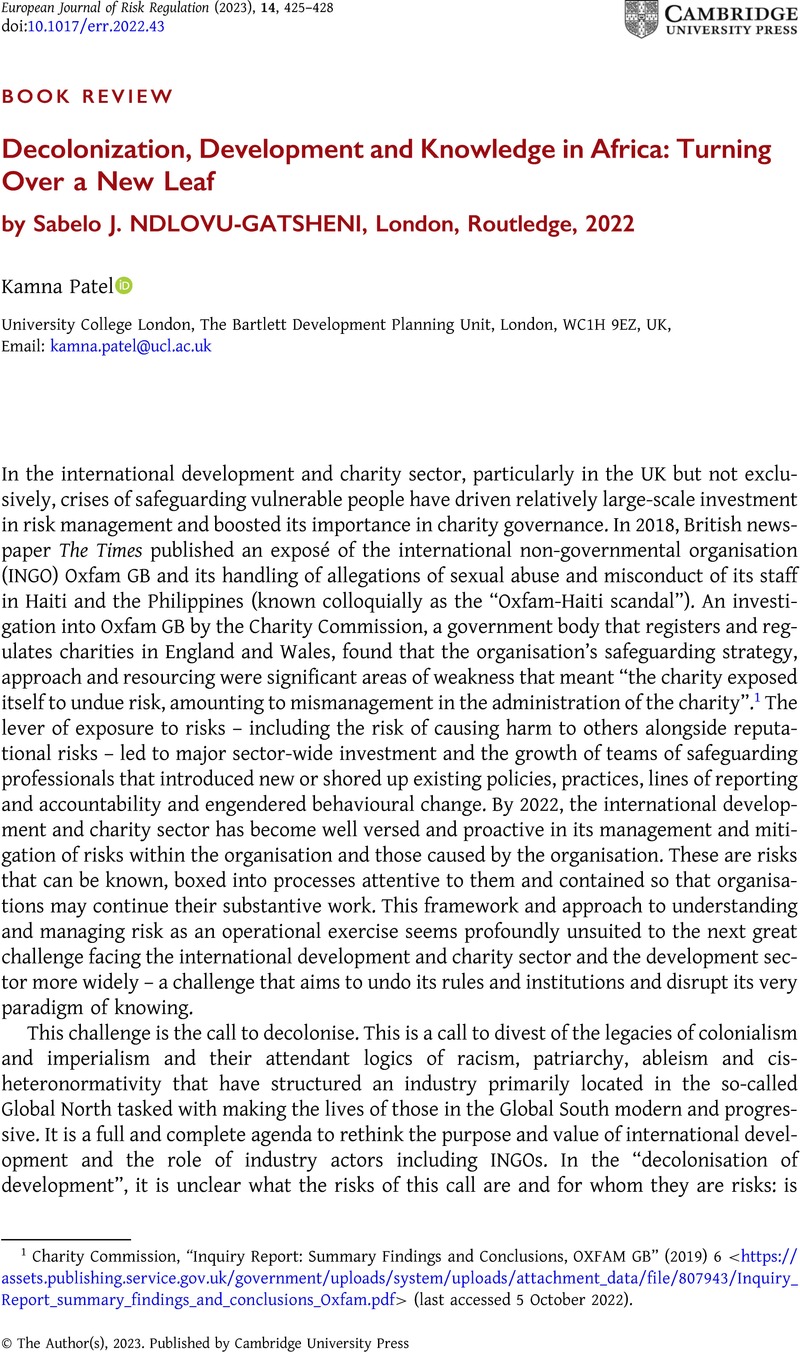No CrossRef data available.
Article contents
Decolonization, Development and Knowledge in Africa: Turning Over a New Leaf by Sabelo J. NDLOVU-GATSHENI, London, Routledge, 2022
Review products
Published online by Cambridge University Press: 16 January 2023
Abstract

- Type
- Book Review
- Information
- Copyright
- © The Author(s), 2023. Published by Cambridge University Press
References
1 Charity Commission, “Inquiry Report: Summary Findings and Conclusions, OXFAM GB” (2019) 6 <https://assets.publishing.service.gov.uk/government/uploads/system/uploads/attachment_data/file/807943/Inquiry_Report_summary_findings_and_conclusions_Oxfam.pdf> (last accessed 5 October 2022).
2 SJ Ndlovu-Gatsheni, Decolonization, Development and Knowledge in Africa: Turning Over a New Leaf (London, Routledge 2022) p 8.
3 ibid, 3.
4 ibid, 13.
5 ibid, 36, citing S Wynter, “Columbus and the Poetics of the Propter Nos” (1991) 8(2) Annals of Scholarship 251–86.
6 ibid, 74.
7 ibid, 119, citing N wa Thiong’o, Re-membering Africa (Nairobi, East African Educational Publishers 2009) pp 5–6.
8 ibid, 171.


